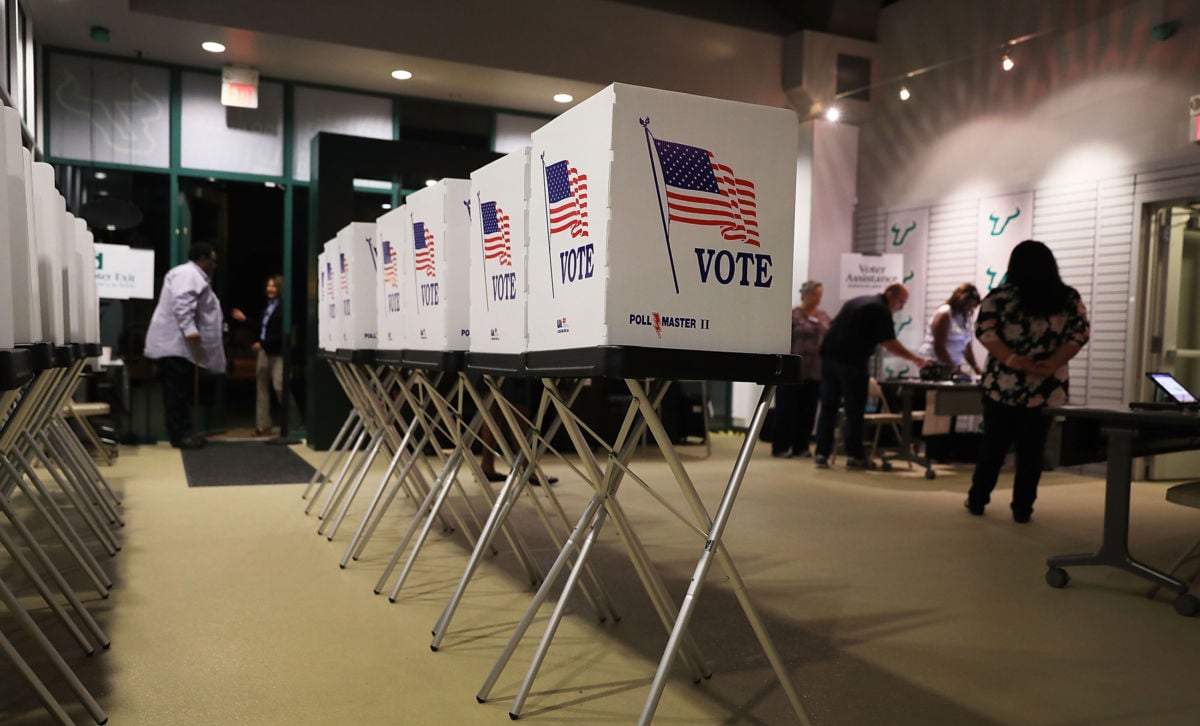Next week, Floridians have a chance to engage in a uniquely democratic act — and not just by casting a ballot in Tuesday’s election. In Florida, they can do something more — they can vote for voting.
Thanks to a movement led by affected citizens, Floridians will vote on Amendment 4 — the Voting Restoration Amendment. If it passes, Amendment 4 will restore the eligibility to vote to 1.4 million Floridians with felony convictions in their past, who are currently barred for life from voting. This amendment, and what it means for democracy, should have particular significance for the Latino community — but perhaps not for the reasons you may think.
It’s tempting to think about Amendment 4 in partisan terms. These days, commentators are quick to speculate on whether voting laws will benefit Democrats or Republicans. But Latino voters are not monolithic — especially not in Florida, where 6 in ten registered Latino voters are Republican or unaffiliated. It’s difficult to say what effect Amendment 4 might have on party politics in the Latino community.
It is also natural to question the racial implications of tying voting to the criminal justice system. And, to be sure, research shows disparities in how Latinos fare in Florida’s system. But that’s a complicated story as well, both because of the racial diversity of the Latino population and because for many years, Latinos were simply not counted in criminal justice data. As far as Florida and many other states were concerned, people in prison were either white or black, making it almost impossible to tell how many of the 1.4 million people that will be impacted by Amendment 4 are Latino.
It’s this exclusion from the conversation that’s really the point. Latinos in the US understand what it means to be marginalized, to be left out of the discussion. It is no secret that even as the Latino population is soaring, Latinos are underrepresented in politics.
Some of this underrepresentation is the result of restrictive voting policies that suppress the Latino vote, often intentionally. Whether or not Florida’s lifetime ban on voting for people with convictions has a disproportionate impact on Latinos, the Latino community has reason to be wary — and critical — of any harsh and restrictive voting law. And Florida’s law is as harsh as it gets. Only two other states in the country, Iowa and Kentucky, permanently bar everyone with a felony conviction from voting.
Some of the underrepresentation of Latinos surely stems from below-average engagement. In Florida, one of the parts of the country where Latino voters have the biggest impact, only 60 percent of registered Latino voters voted in the 2016 election, compared to 66 percent of all registered voters. Latinos often lament this low turnout, which lags behind that of both white and black voters. Meanwhile, there are Floridians clamoring for the opportunity to vote who can’t. They led an initiative to collect over a million signatures in order to get Amendment 4 on the ballot. Anyone concerned about apathy should welcome their enthusiasm for democracy.
The bottom line is that the Latino community stands to benefit from a broader, more inclusive democracy. As Latinos struggle to have their voices heard, they should be careful not to push others to the margins.
Perhaps this common struggle allows Latinos, especially in a state like Florida, to look past the partisan divide. Maybe instead, Latino voters can consider Amendment 4 on principle. The measure honors a principle that is more or less universal: forgiveness. It is not a conservative principle or a liberal principle — it is a principle of humanity. Indeed, the notion of forgiveness is sewn into the very fabric of our democracy and our legal institutions. Though we sometimes forget it, it is a bedrock principle of our criminal justice system, which aims to reintegrate returning citizens who have served their time. As the Florida Conference of Catholic Bishops put it when endorsing Amendment 4, “Punishment must include a constructive and redemptive purpose. As nearly all inmates will return to society, their integration must be encouraged.”
In other words, society benefits from re-enfranchising returning citizens. This is truer in Florida than anywhere. Florida is such an outlier on this issue, denying the vote to so many, that Amendment 4 impacts everyone. The 1.4 million people that could regain their eligibility to vote represent nearly 10 percent of the total voting-age citizen population in Florida. There can be no doubt a group that size includes Floridians of all races, ethnicities, and political parties. Florida’s democracy is broken, and no one — least of all Latino voters — should be okay with a system that relegates so many to second-class status, denying them one of the hallmarks of US citizenship.
Join us in defending the truth before it’s too late
The future of independent journalism is uncertain, and the consequences of losing it are too grave to ignore. To ensure Truthout remains safe, strong, and free, we need to raise $29,000 in the next 36 hours. Every dollar raised goes directly toward the costs of producing news you can trust.
Please give what you can — because by supporting us with a tax-deductible donation, you’re not just preserving a source of news, you’re helping to safeguard what’s left of our democracy.
